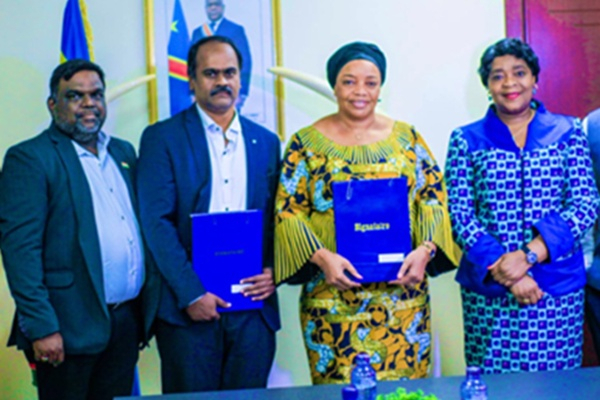The Democratic Republic of Congo (DRC) will soon asphalt some of its roads with recycled plastic waste. On March 13, 2025, the Congolese government sealed the related deal, a memorandum of understanding (MoU), with India's Thiagarajar College of Engineering. to pave roads using recycled plastic waste, a technique that has been successfully implemented in India for the past decade.
"The aim is to ensure an effective transfer of skills and equip the country with local expertise in smart, sustainable roads," the minister said.
According to Ève Bazaiba Masudi, the DRC’s Minister of State for the Environment and Sustainable Development, the project aligns with the DRC's five-year action program (2024-2028). Masudi added that the initiative will improve roads and tackle environmental issues caused by plastic pollution.
The DRC’s partner on the project, Thiagarajar College of Engineering, is located in Madurai, India. The college promotes research and innovation and develops sustainable technological solutions in collaboration with academic and industrial partners.
Under the agreement, the DRC will receive a license to operate and market this flexible pavement technology. Key national agencies, including the Office des Routes, the Office des Voiries et Drainage, and the Institut National du Bâtiment et des Travaux Publics, will be involved in testing and implementing the project.
This initiative comes at a critical time for the DRC, particularly for Kinshasa, where plastic waste management has long been a significant challenge. Previous efforts, including a 2015 European Union-supported project that established a plastic waste treatment plant and collection stations, have had limited success. In 2022, the American company Clean-Seas announced a $30 million investment in a thermal power plant in Kinshasa to convert plastic waste into energy products and electricity.
Ronsard Luabeya (intern)










